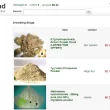BidenCash and its involvement in a massive data breach, leaking millions of stolen credit card details.
In today’s digital world, data breaches have become unfortunate for organizations. The continuous evolution of technology has brought immense convenience to our lives. But it has also opened doors for cybercriminals to exploit vulnerabilities and compromise sensitive information.
One recent incident that has sent shockwaves through the e-commerce landscape is the Bidencash data breach. This article aims to shed light on the magnitude of the breach, the potential risks it poses to individuals, and the crucial importance of safeguarding personal data.
The Bidencash Data Leak
A criminal site known as BidenCash, exploiting the name and likeness of the U.S. President, Joe Biden, has recently made headlines for its illegal activities involving stolen data. As a part of its one-year celebration of operating an underground marketplace for trading in stolen information and financial credentials, BidenCash carried out a daring act by leaking a staggering dataset containing 2,165,700 credit and debit cards online.
To commemorate its first anniversary, BidenCash publicised the massive leak on an underground cybercrime forum, attracting attention and raising concerns among cybersecurity experts and authorities. This breach is a stark reminder of the ever-growing threat of cybercrime, where criminals exploit vulnerable individuals and compromise their sensitive financial information.
Dataset Released by Bidencash
On its one-year milestone, Bidencash released a dataset containing a vast amount of stolen information. This dataset includes the personal and financial details of millions of individuals who have fallen victim to this illegal operation. The release of such a comprehensive dataset highlights the audacity and scale of cybercriminal activities in today’s digital landscape.
Cards Compromised (credit, debit, and charge):
Within the leaked dataset, researchers at global threat intelligence firm Cyble have identified a breakdown of the compromised cards. The dataset comprises 740,858 credit cards, 811,676 debit cards, and 293 charge cards. These staggering numbers underscore the extensive reach of the Bidencash data breach, affecting a wide range of individuals who use different types of cards for their financial transactions.
Inclusion of “Fullz” information:
What makes this particular data leak significant is the sheer volume of compromised cards and the completeness of the dataset itself. Cybercriminals often refer to complete sets of personally identifiable information as “Fullz.”
In this case, the leaked data includes card numbers and personal information. This additional information typically includes an individual’s full name, date of birth, social security number, address, phone number, email address, bank account details, and other personally identifiable information. Including “Fullz” data significantly amplifies the risks faced by the victims in BidenCash, exposing them to identity theft and various financial scams.
The Bidencash data leak is a stark reminder of the relentless cybercrime economy that continues to wreak havoc on unsuspecting cardholders. With the recent breach involving millions of credit and debit cards, the need for robust cybersecurity measures and enhanced personal data protection has never been more crucial. Organisations and individuals must remain vigilant, implementing strong security protocols to safeguard their sensitive information and mitigate the risks posed by such massive data breaches.
How did Bidencash obtain such a massive amount of data?
The BidenCash answer lies in digital skimming attacks, also known as Magecart attacks. These malicious activities involve skimming information entered into payment forms on checkout pages and intercepting and sending the data to remote computers controlled by the attackers. To accomplish this, the attackers exploit vulnerabilities in third- and fourth-party JavaScript code used by countless websites to provide functionalities like online shopping carts, forms, analytics, advertising, and social sharing.
According to alarming statistics, the dark web witnessed the posting of approximately 60 million compromised payment card records for sale in 2022 alone. Among these records, 45.6 million were classified as card-not-present (CNP), indicating that they were harvested during online eCommerce transactions. These numbers emphasise the scale and impact of digital skimming attacks, revealing the extent of cybercriminal activities targeting unsuspecting individuals.
In a revealing report by the Recorded Future® Magecart Overwatch program, it was discovered that 1,520 unique malicious domains were infecting 9,290 eCommerce domains at some point during 2022. Even more alarming is that 2,468 eCommerce domains remained actively infected at the end of the year. These findings highlight that numerous high-profile Magecart attacks often go undetected for months and even years, exacerbating the damage caused to individuals and organizations.
The BidenCash data leak is a stark wake-up call for businesses and individuals to strengthen their cybersecurity measures. Protecting sensitive customer data must become a top priority for e-commerce sites and organisations across the globe. Implementing robust security protocols, conducting regular security audits, and staying vigilant against emerging threats like digital skimming attacks are essential steps towards safeguarding personal information and mitigating the risks associated with data breaches.
Dark Twist on Marketing Gone Wrong
As a significant player in the cybercrime economy, BidenCash provides a platform for bad actors to utilize these stolen credit cards, enabling them to conceal their illegal activities. The methods to acquire this sensitive information include data-stealing malware and compromising point-of-sale devices.
According to Cyber News research, the dataset BidenCash leaked contains credit card information from various countries worldwide. Cards issued in the United States have been the most impacted, followed by China, Mexico, India, Canada, and the United Kingdom.
Businesses and financial institutions face an uphill struggle in the ongoing battle to secure personal credit card information. While cyber police have shut down similar operations in the past, BidenCash has established itself as a dominant player in the illicit, stolen credit card marketplace.
Brian Riley, Director of Credit and Co-Head of Payments at Javelin Strategy & Research, emphasises fraudsters’ swift and adaptive nature. As innovations make life easier for consumers, fraudsters quickly adapt to exploit vulnerabilities that may be overlooked or minimized during development. He draws attention to the notorious TJX breach, orchestrated by Alberto Gonzalez, as a reminder of how fraudsters can exploit vulnerabilities in the system.
With BidenCash, we witness a new twist on an old trick—an entire marketplace dedicated to serving bad actors. As businesses strive to provide seamless customer experiences, remaining vigilant and proactive in implementing robust security measures is crucial. While convenience is essential, it should not come at the cost of opening additional channels for fraudulent activities.
As the battle to protect personal credit card information rages on, businesses and individuals must prioritize cybersecurity and remain vigilant against evolving threats posed by cybercriminals like BidenCash.
Safety Measure to Save Credit Cards
With the alarming rise of digital skimming attacks, safeguarding your customers’ payment and personal information should be a top priority to avoid the devastating consequences of a data breach. A single breach can have long-lasting implications for your organization, affecting your reputation, legal standing, operations, and financial stability.
The aftermath of a significant data breach includes reputational and brand damage, posing challenges in retaining customers. It can also result in substantial legal costs, including fines, penalties, and potential class-action lawsuits. The disruption to operations, such as staff turnover, can further compound the impact. Additionally, a data breach can lead to a sharp decline in stock price or business valuation, causing financial losses. The expenses incurred in breach investigations, restitution, and PR management further strain the company’s resources. Losing market share to competitors is another consequence that can have a lasting impact on your business.
To mitigate these risks, taking proactive measures to protect your brand and customer data is crucial. One solution that offers comprehensive threat visibility, control, and prevention is the Source Defense Client-Side Web Application Security Platform. This all-in-one system is designed to stop client-side attacks without requiring manual intervention from your teams.
The platform creates virtual pages that isolate third-party scripts from your website, replicating the original pages while excluding unauthorized access. It actively monitors all activities of these third-party scripts on the virtual pages. The activity is transferred to the original page if it falls within its allowed scope. However, suppose any script violates your security policy. In that case, Source Defense keeps its activity isolated on the virtual pages and sends a report to the website owner, alerting them to the breach.
The Source Defense platform offers a robust and convenient solution for managing the risks associated with third-party involvement in your digital supply chain, effectively preventing client-side attacks. By proactively safeguarding your customers’ data, you can close potential security gaps and protect your brand from the damaging consequences of a data breach for frauds like BidenCash.
Conclusion
Digital skimming attacks, such as the Magecart attacks, have become prevalent for stealing payment and personal information from unsuspecting individuals. These attacks target third- and fourth-party JavaScript code vulnerabilities, affecting numerous websites and compromising millions of payment card records. The need for enhanced security measures and vigilance in protecting customer data has never been more critical.
Businesses and financial institutions must recognize the significant consequences of a data breach, both in the immediate aftermath and the long-term repercussions. Reputational damage, legal costs, operational disruption, financial losses, and the loss of market share are some of the challenges organizations face when sensitive data falls into the wrong hands.
The dominance of BidenCash highlights the urgency to secure personal credit card information effectively. Collaboration among organizations, law enforcement, and cybersecurity experts is crucial. Vigilance, improved security practices, and proactive measures are necessary to combat cybercrime and protect customer data. Organizations can contribute to a safer digital environment and maintain customer trust by prioritizing data protection and investing in advanced security technologies. The fight against cybercriminals is ongoing, requiring a collective effort and commitment to cybersecurity best practices.




